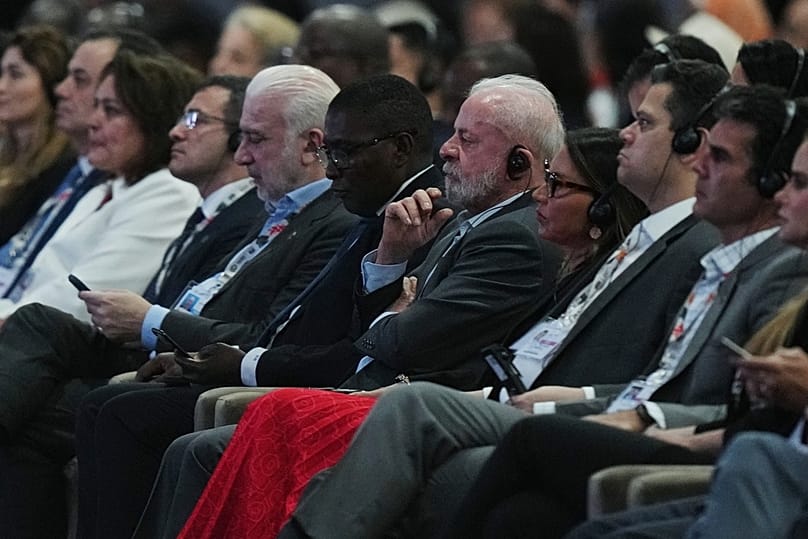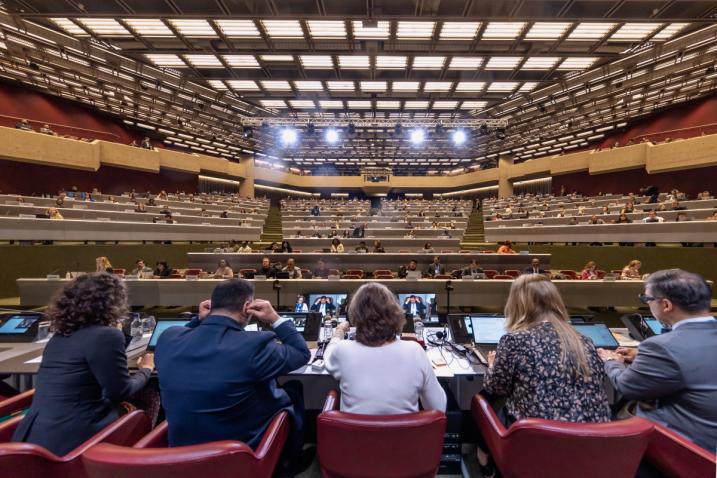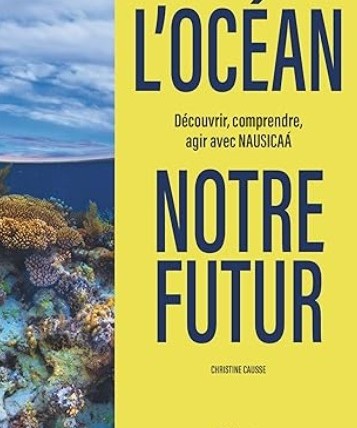According to a report released Tuesday by the United Nations, emissions from air conditioning could double by 2050 if more sustainable practices are not introduced.
The UN emphasizes that sustainable air conditioning must be a priority in efforts to reduce greenhouse gas emissions, as highlighted in the report published during the COP30 climate negotiations in Brazil.
For Inger Andersen, Executive Director of the United Nations Environment Programme (UNEP), sustainable air conditioning should be considered an essential part of infrastructure, alongside water, energy, and sanitation.
However, she warns that over-reliance on conventional air conditioners would worsen the heat crisis.
“If we continue down this path, we will only increase greenhouse gases, raise costs, overload the grid, and trigger demand spikes,” she said during a press conference on Tuesday.
Andersen calls for the development of energy-efficient solutions, including smart buildings, affordable cooling systems, and urban planning that reduces the carbon footprint of air conditioning.
Air Conditioning Emissions Could Double by 2050
The UN report launch coincided with the announcement of the “Mutirão Contra o Calor Extremo” (Mobilization Against Extreme Heat) initiative, a program led by the Brazilian COP30 presidency and UNEP, aimed at strengthening resilience to heatwaves.
According to a report released Tuesday by the United Nations, emissions from air conditioning could double by 2050 if more sustainable practices are not introduced.

The UN emphasizes that sustainable air conditioning must be a priority in efforts to reduce greenhouse gas emissions, as highlighted in the report published during the COP30 climate negotiations in Brazil.
For Inger Andersen, Executive Director of the United Nations Environment Programme (UNEP), sustainable air conditioning should be considered an essential part of infrastructure, alongside water, energy, and sanitation.
However, she warns that over-reliance on conventional air conditioners would worsen the heat crisis.
“If we continue down this path, we will only increase greenhouse gases, raise costs, overload the grid, and trigger demand spikes,” she said during a press conference on Tuesday.
Andersen calls for the development of energy-efficient solutions, including smart buildings, affordable cooling systems, and urban planning that reduces the carbon footprint of air conditioning.
Air Conditioning Emissions Could Double by 2050
The UN report launch coincided with the announcement of the “Mutirão Contra o Calor Extremo” (Mobilization Against Extreme Heat) initiative, a program led by the Brazilian COP30 presidency and UNEP, aimed at strengthening resilience to heatwaves.
First-ever UN Climate Conference in Brazil
For the first time, the United Nations Climate Conference is being held in Brazil.
Delegates from nearly 200 countries are participating in the COP30 discussions, taking place since Monday in Belém, on the edge of the Amazon rainforest. The summit will conclude on November 21.
Source: euronews




